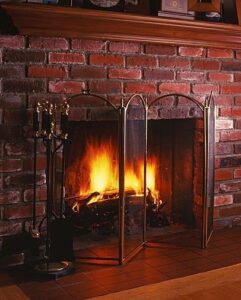When it comes to home maintenance, preventive maintenance is something that often gets overlooked. Many homeowners only call in a handyman when things go wrong, but what if there was a way to avoid those costly repairs altogether? Well, that’s where preventive maintenance comes into play. By keeping your home in check and addressing potential issues before they escalate, you can save both time and money in the long run.
Understanding Preventive Maintenance
So, what exactly is preventive maintenance? It can be defined as a proactive approach to maintaining your home. This means regularly scheduled inspections and repairs that aim to identify and fix minor issues before they develop into major headaches. Think of it as a health check-up for your house. Just like you wouldn’t wait until you’re sick to visit the doctor, you shouldn’t wait until your home is falling apart to call a handyman.
Why You Should Consider Preventive Maintenance
Let’s be honest: nobody likes dealing with unexpected repairs. Not only are they often expensive, but they can also be incredibly disruptive to your daily life. By investing in preventive maintenance, you can avoid these inconveniences. Here are a few compelling reasons to consider:
- Cost Savings: Regular maintenance helps catch issues early, saving you from costly repairs down the road.
- Increased Property Value: A well-maintained home retains its value better than one that is neglected.
- Peace of Mind: Knowing that your home is in good condition can provide a sense of security and comfort.
- Energy Efficiency: Regular maintenance can improve your home’s energy efficiency, leading to lower utility bills.
The Key Areas of Preventive Maintenance
Now that we understand the importance of preventive maintenance, let’s dive into the key areas that require regular attention:
1. HVAC Systems
Your heating, ventilation, and air conditioning (HVAC) system plays a crucial role in your home’s comfort. Regular filter changes, cleaning, and inspections can help ensure that your HVAC system runs efficiently. A well-maintained system can also prolong its lifespan, keeping you cool in the summer and warm in the winter.
2. Plumbing
Inspecting your plumbing for leaks or corrosion is essential. A small leak can quickly turn into a major issue if not addressed. Regular checks on pipes, faucets, and water heaters can save you from unexpected water damage and costly repairs.
3. Electrical Systems
Electrical issues can be dangerous. Schedule regular inspections of your electrical system to ensure everything is functioning correctly. This includes checking outlets, switches, and circuit breakers. A qualified handyman can help identify any potential hazards.
4. Roof and Gutters
Your roof is your home’s first line of defense against the elements. Regular inspections can catch issues like missing shingles or leaks. Additionally, keeping gutters clean and free from debris can prevent water damage and foundation issues.
5. Exterior Maintenance
Don’t forget about the exterior of your home! Regularly check for peeling paint, cracks in the foundation, and any signs of pest infestations. Keeping your home’s exterior in good shape not only enhances curb appeal but also protects your investment.
Creating a Preventive Maintenance Schedule
Now that you know the key areas to focus on, it’s time to create a preventive maintenance schedule. Here’s a simple breakdown of what that might look like:
- Monthly: Check HVAC filters, inspect plumbing for leaks, and test smoke detectors.
- Quarterly: Inspect roof and gutters, clean air vents, and check for signs of pests.
- Biannually: Schedule professional HVAC and electrical inspections, and assess your home’s exterior.
- Annually: Conduct a thorough home inspection, including checking appliances and major systems.
Finding the Right Handyman
If you’re thinking, “This all sounds great, but I don’t have the time or expertise,” don’t worry! Finding the right handyman can make all the difference. Look for someone who is experienced, reliable, and can provide references. A good handyman will not only help you with preventive maintenance but can also offer valuable advice on how to keep your home in tip-top shape.
Frequently Asked Questions
What is preventive maintenance?
Preventive maintenance is a proactive approach to maintaining your home by regularly inspecting and addressing potential issues before they escalate into costly repairs.
How often should I perform preventive maintenance?
A general guideline is to perform monthly checks for minor tasks, quarterly inspections for more significant areas, and an annual comprehensive home inspection.
Can I do preventive maintenance myself?
Yes, many preventive maintenance tasks can be done by homeowners, such as changing air filters or inspecting for leaks. However, some tasks may require a professional handyman for safety and expertise.
What are the benefits of preventive maintenance?
Preventive maintenance can save you money, increase your home’s value, provide peace of mind, and improve energy efficiency.
Final Thoughts
In today’s fast-paced world, it’s easy to let preventive maintenance slip through the cracks. However, taking the time to invest in your home can pay off immensely in the long run. Remember, a little bit of attention goes a long way, and with a solid preventive maintenance plan in place, you can enjoy your home without the worry of unexpected repairs.






